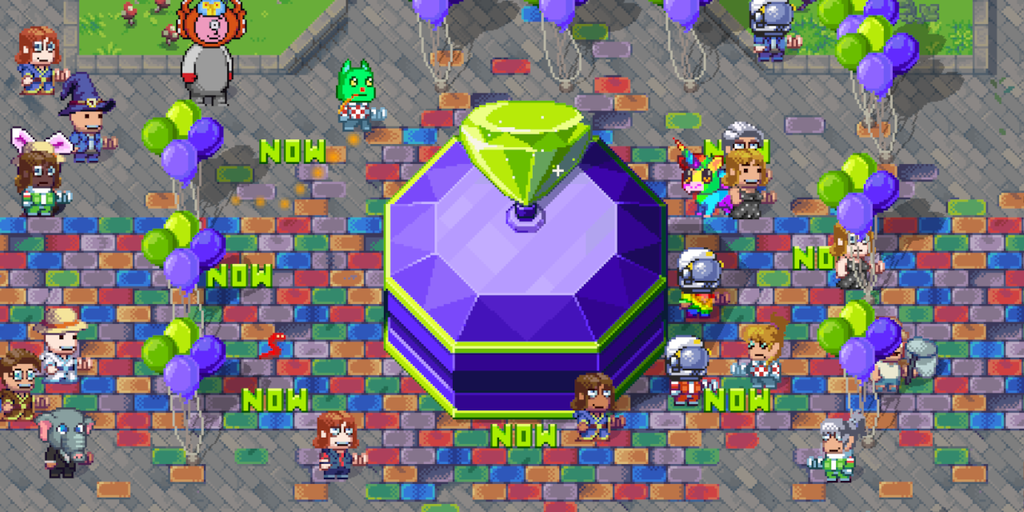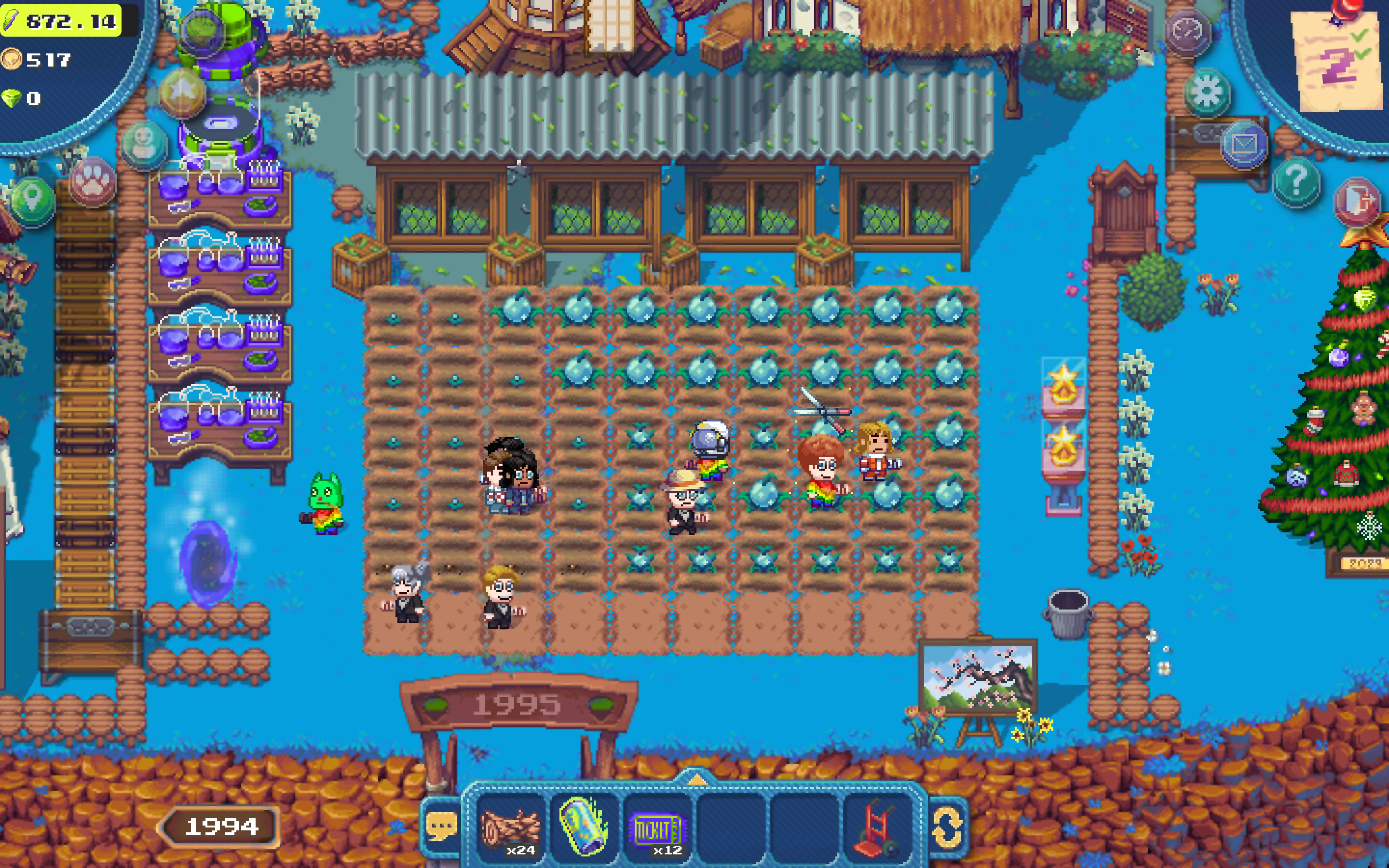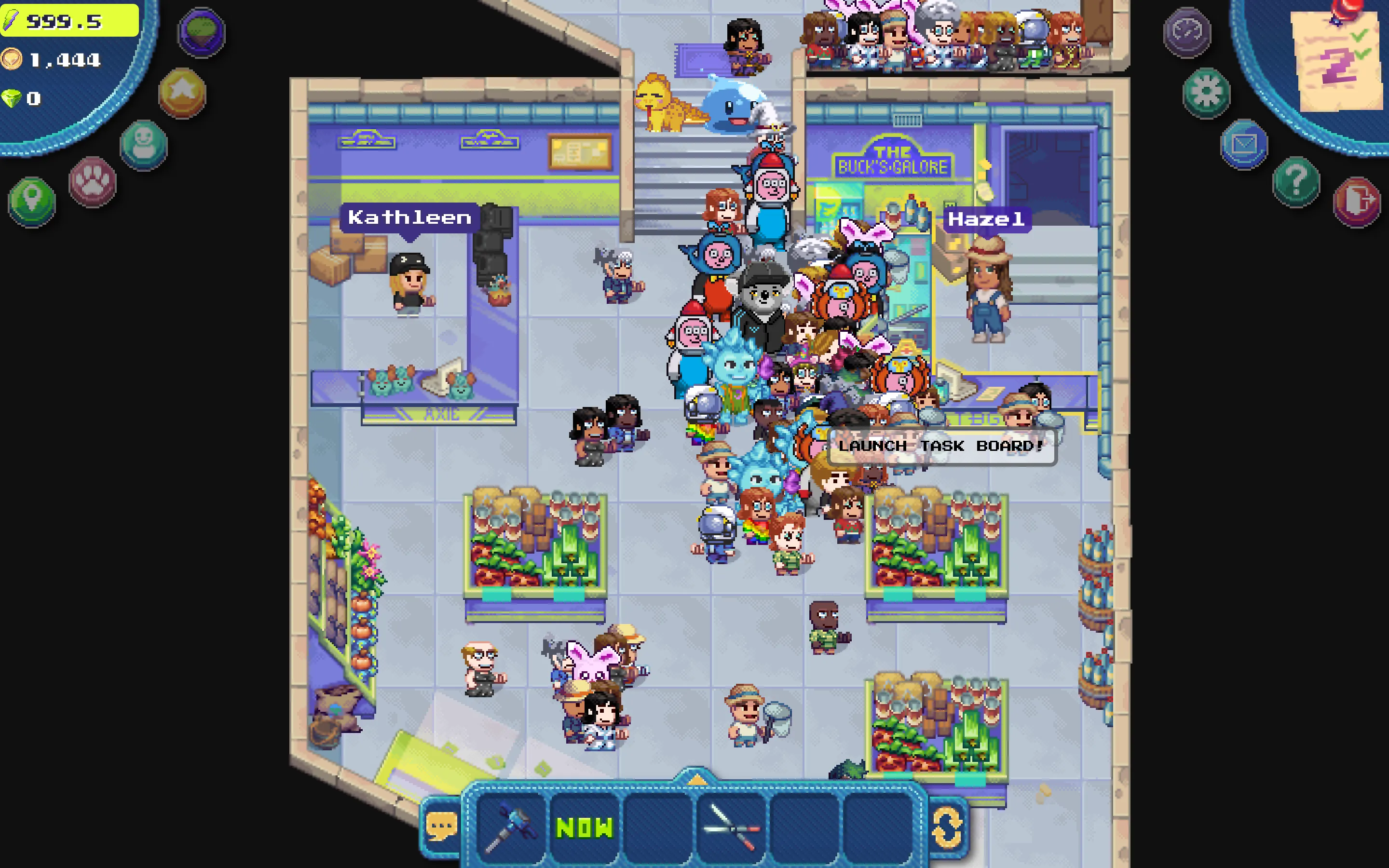
The crypto gaming space has been gripped by Pixels in recent months, and Decrypt’s GG is no exception. We’ve covered the rising player counts since migrating to Ronin, interviewed the founder about its surge, and detailed this week’s long-awaited PIXEL token launch.
But unlike many gaming projects that enjoy a fleeting moment in the crypto spotlight, there’s an actual playable game behind the token hype—and it doesn’t require any expensive NFTs to play, and you don’t have to beg around Discord servers to gain access. Best of all, it doesn’t feel like a dressed-up DeFi experience where the only goal is farming for token rewards.
True, there are token rewards, and there is farming—but you’re farming (digital) crops. Pixels is a proper free-to-play game, and it’s a pretty fun one, too.
I’ve been playing the web-based game over the last couple of weeks, poking around as I plant and harvest popberries, bake pies, run errands, explore player-created farms, and talk to a Guy Fieri look-alike named… well, Fuy Gieri. Sure.
Pixels feels a lot like a lo-fi, crypto-infused riff on Nintendo’s smash pandemic hit, Animal Crossing: New Horizons. You’ll explore the terrain in search of materials and complete simple tasks, craft and build things, amass a little coin, and customize your little plot of land. And if you buy an NFT, you can customize a much bigger plot of land.
It’s a relatively concise gameplay loop, and while I feel like I’ve only scratched the surface of all the different tasks and creative opportunities on display so far in Pixels, I also feel like I’ve already gotten a strong sense of the scope of the experience. And that won’t be for everyone since it can sometimes feel like rote busywork.

But here’s the thing: Given that description alone, Pixels probably wouldn’t be the type of game I’d expect to hold my interest for long. I bounced off Animal Crossing repeatedly in the early days of the pandemic, no matter how much I thought I could desperately use a colorful, low-stakes, relatively mindless gaming distraction at the time. I just couldn’t get into it.
What’s made Pixels appealing to me so far is not the routine of it, but really how alive the shared game world feels. It’s unclear at this point whether the Ronin network game can sustain the buzz that has driven hundreds of thousands of active players into this retro-style world, but it’s exciting to see loads of little player avatars—many based on player-owned NFTs—all sharing the same space and eagerly completing quests.

And there’s plenty more to come. Founder Luke Barwikowski told Decrypt’s GG last week that they have big plans ahead—and furthermore that they like to build in the open and experiment on the fly, evolving the experience as they go. Pixels feels like the place to be right now in crypto gaming, and it’s been neat to see things shift and change already in this world.
There are crypto incentives at play, as certain tasks will offer up occasional PIXEL tokens. But the window to secure a sizable bag of airdropped tokens has passed, and realistically, Pixels doesn’t look like it’s going to hand out the kind of outsized crypto rewards that Axie Infinity could reasonably boast during its 2021 play-to-earn heyday.
I connect to the game through my Ronin wallet, but I don’t own any PIXEL or in-game NFTs, nor any of the supported NFT profile pictures (PFPs) that yield custom avatars. And I could just as well log in with an email address like any other free-to-play game and get the same kind of core experience, which is a meaningful detail in my eyes. It’s a game above all.
Should you play Pixels? Absolutely—you’ve got nothing to lose by giving it a shot. Your mileage may vary in terms of whether it holds your attention, and if you might want to dig deeper into the crypto elements and invest in a premium VIP membership or NFT land plot.
Me? I’m probably fine just poking around Pixels and soaking in the enthusiasm of other players while maybe earning a PIXEL token here and there. We’ve been waiting for this era of blockchain games to start, where fun comes first and the crypto stuff feels optional.
It’s poetic, perhaps, that one of the brightest examples yet is a game about farming. Just not that kind of farming.
Edited by Ryan Ozawa.

















